Filter by
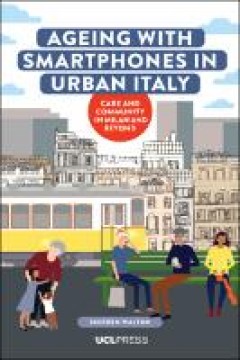
Ageing with Smartphones in Urban Italy : Care and community in Milan and beyond
‘Who am I at this (st)age? Where am I and where should I be, and how and where should I live?’ These questions, which individuals ask themselves throughout their lives, are among the central themes of this book, which presents an anthropological account of the everyday experiences of age and ageing in an inner-city neighbourhood in Milan, and in places and spaces beyond.Ageing with Smartpho…
- Edition
- -
- ISBN/ISSN
- 9781787359710
- Collation
- 188p. ; ill.
- Series Title
- Ageing with Smartphones
- Call Number
- 305.260945211 SHI a
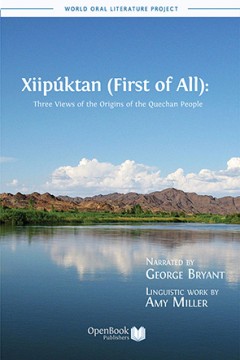
Xiipúktan (first of all): three views of the origins of the Quechan people
The Quechan people live along the lower part of the Colorado River in the United States. According to tradition, the Quechan and other Yuman people were created at the beginning of time, and their Creation myth explains how they came into existence, the origin of their environment, and the significance of their oldest traditions. The Creation myth forms the backdrop against which much of the tr…
- Edition
- -
- ISBN/ISSN
- 9781909254411
- Collation
- 210 p. ; 24 cm
- Series Title
- -
- Call Number
- 973.0497 BRY x
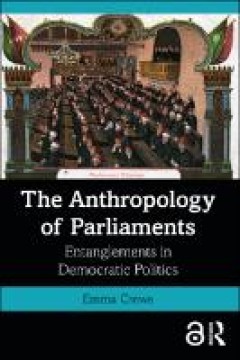
The anthropology of parliaments: entanglements in democratic politics
The Anthropology of Parliaments offers a fresh, comparative approach to analysing parliaments and democratic politics, drawing together rare ethnographic work by anthropologists and politics scholars from around the world. Crewe’s insights deepen our understanding of the complexity of political institutions. She reveals how elected politicians navigate relationships by forging alliances and t…
- Edition
- -
- ISBN/ISSN
- 9781003084488
- Collation
- 242 p.: black and white, ill.
- Series Title
- -
- Call Number
- 328.3 CRE t

The search for the first americans : science, power, politics
"Who were the First Americans? Where did they come from? When did they get here? Are they the ancestors of modern Native Americans? These questions might seem straightforward, but scientists in competing fields have failed to convince one another with their theories and evidence, much less Native American peoples. The practice of science in its search for the First Americans is a flawed endeavo…
- Edition
- -
- ISBN/ISSN
- 9780806175935
- Collation
- ix, 163 p.
- Series Title
- -
- Call Number
- 970.00497 DAV t
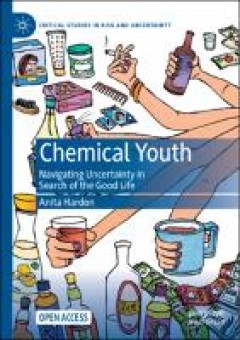
Chemical Youth : Navigating Uncertainty in Search of the Good Life
This open access book explores how young people engage with chemical substances in their everyday lives. It builds upon and supplements a large body of literature on young people’s use of drugs and alcohol to highlight the subjectivities and socialities that chemical use enables across diverse socio-cultural settings, illustrating how young people seek to avoid harm, while harnessing the bene…
- Edition
- -
- ISBN/ISSN
- 9783030570811
- Collation
- 318p. ; ill.
- Series Title
- Critical Studies in Risk and Uncertainty
- Call Number
- 362.29 ANI c
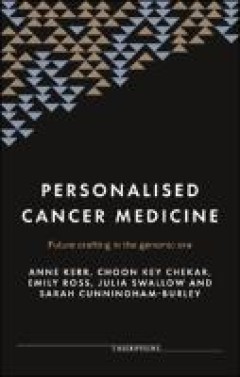
Personalised cancer medicine : future crafting in the genomic era
What does it mean to personalise cancer medicine? Personalised cancer medicine explores this question by foregrounding the experiences of patients, carers and practitioners in the UK. Drawing on an ethnographic study of cancer research and care, we trace patients’, carers’ and practitioners’ efforts to access and interpret novel genomic tests, information and treatments as they craft pers…
- Edition
- -
- ISBN/ISSN
- 9781526156532
- Collation
- viii, 277 p.
- Series Title
- -
- Call Number
- 616.9940695 KER p
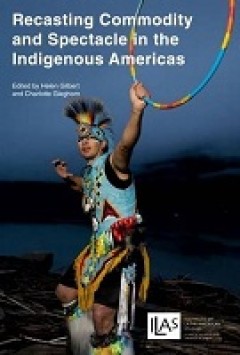
Recasting commodity and spectacle in the indigenous Americas
Indigenous artists frequently voice concerns over the commodification of their cultures, a process acutely felt by those living with the consequences of colonialism. This timely book, which features colour illustrations throughout, examines the ways in which contemporary indigenous peoples in different parts of the Americas have harnessed performance practices to resist imposed stereotypes and …
- Edition
- -
- ISBN/ISSN
- 9781908857088
- Collation
- ix, 273p.
- Series Title
- -
- Call Number
- 700.98 REC g
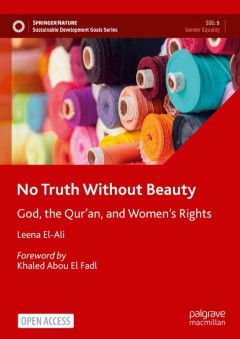
No truth without beauty : god, the Quran, and women's rights
In this comprehensive open access book, written for readers from any or no religious background, Leena El-Ali does something remarkable. Never before has anyone taken on every last claim relating to Islam and women and countered it not just with Qur’anic evidence to the contrary, but with easy-to-use tools available to all. How can a woman’s testimony be worth half of a man’s? How can men…
- Edition
- 4
- ISBN/ISSN
- 9783030835828
- Collation
- xxxii, 306 p.
- Series Title
- -
- Call Number
- 297.082 ELA n
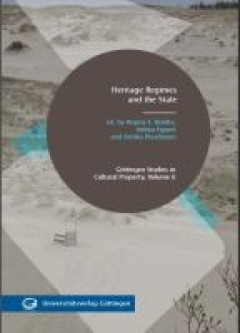
Heritage regimes and the state
What happens when UNESCO heritage conventions are ratified by a state? How do UNESCO’s global efforts interact with preexisting local, regional and state efforts to conserve or promote culture? What new institutions emerge to address the mandate? The contributors to this volume focus on the work of translation and interpretation that ensues once heritage conventions are ratified and implement…
- Edition
- Ed. 2
- ISBN/ISSN
- 9783863951221
- Collation
- 413p.
- Series Title
- -
- Call Number
- 363.69 HER b
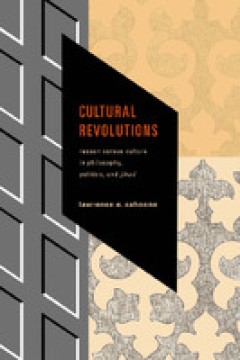
Cultural revolutions : reason versus culture in philosophy, politics, and jihad
Cultural Revolutions argues that reason itself is cultural, but no less reasonable for it. Lawrence Cahoone systematically defines culture and gauges the consequences of the ineradicably cultural nature of cognition and action, yet argues that none of this implies relativism. Cahoone offers a definition of culture as teleologically organized practices, artifacts, and narratives and analyzes the…
- Edition
- -
- ISBN/ISSN
- 9780271030241
- Collation
- 231p.
- Series Title
- -
- Call Number
- 306.09 CUL c
 Computer Science, Information & General Works
Computer Science, Information & General Works  Philosophy & Psychology
Philosophy & Psychology  Religion
Religion  Social Sciences
Social Sciences  Language
Language  Pure Science
Pure Science  Applied Sciences
Applied Sciences  Art & Recreation
Art & Recreation  Literature
Literature  History & Geography
History & Geography